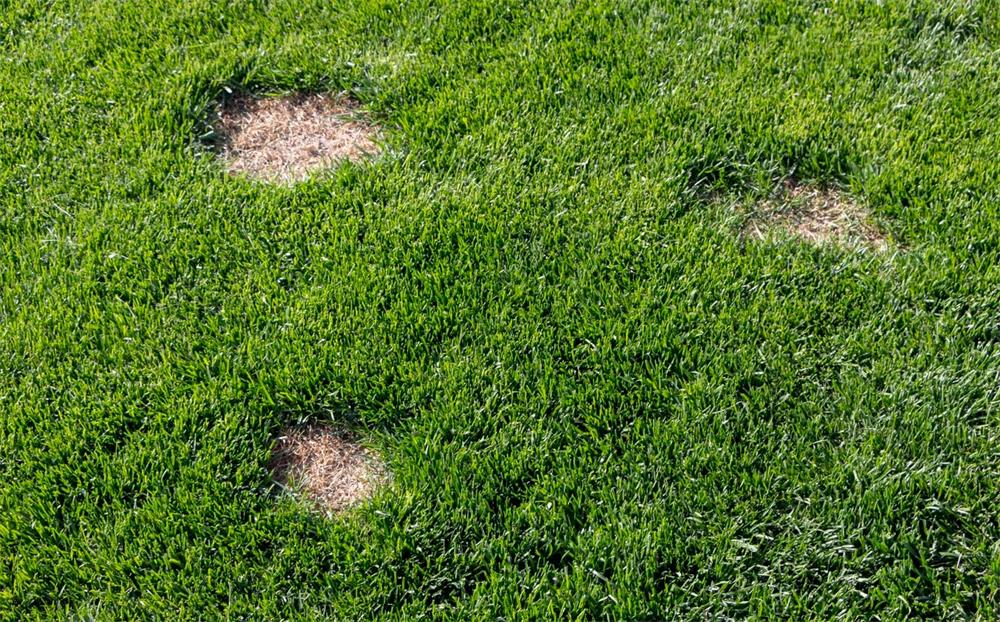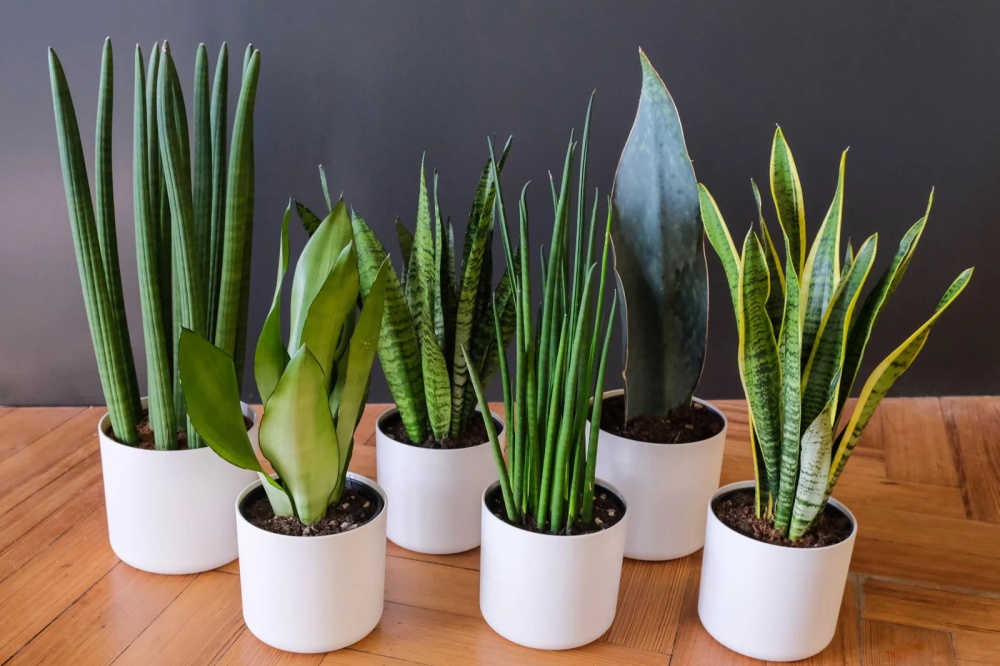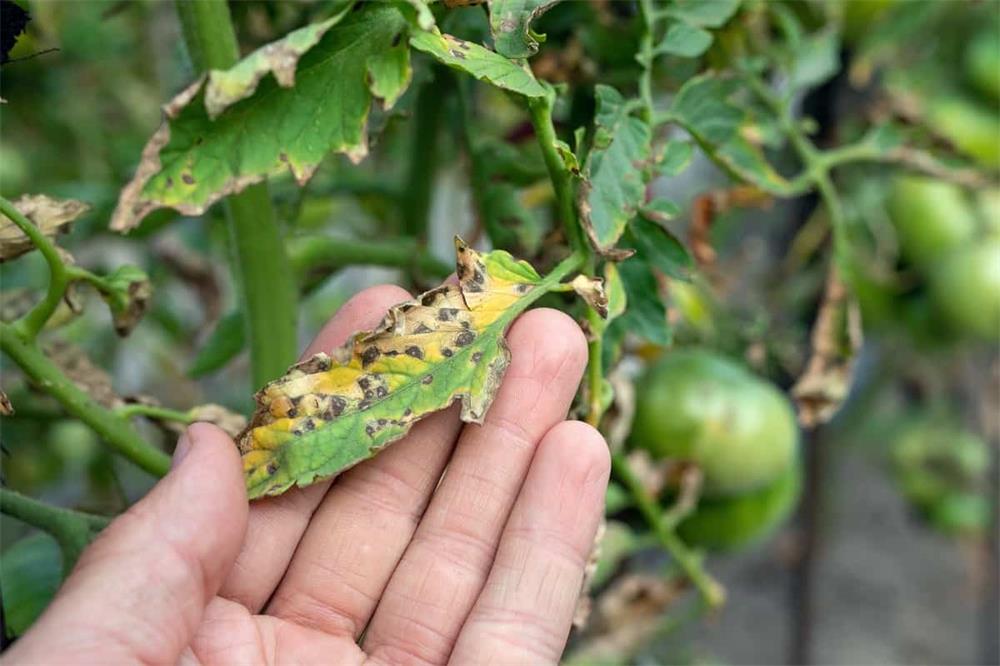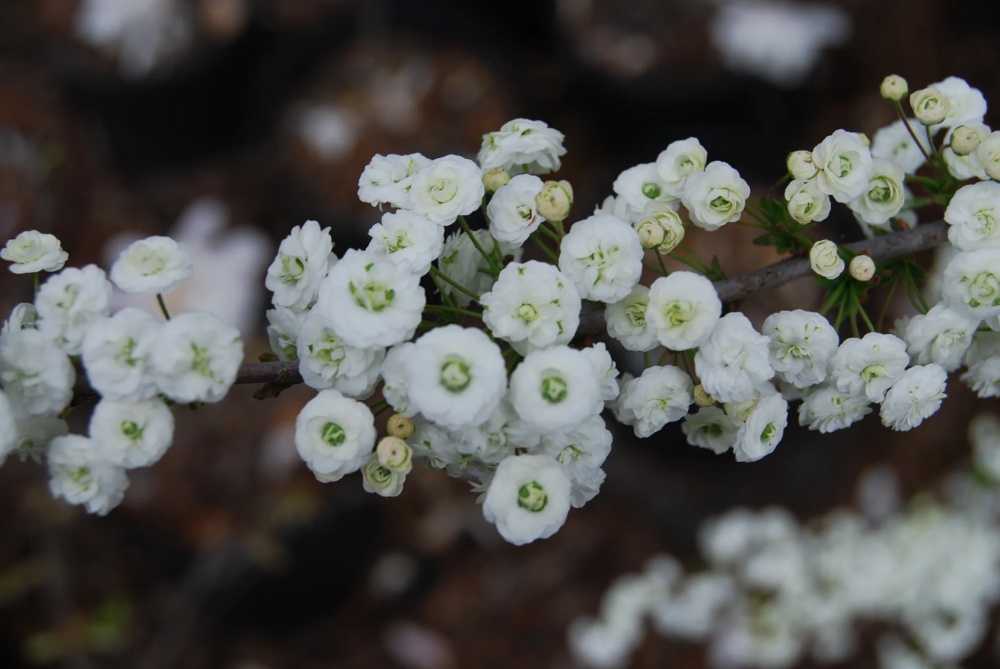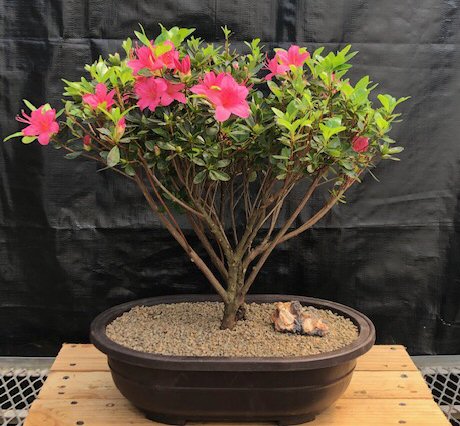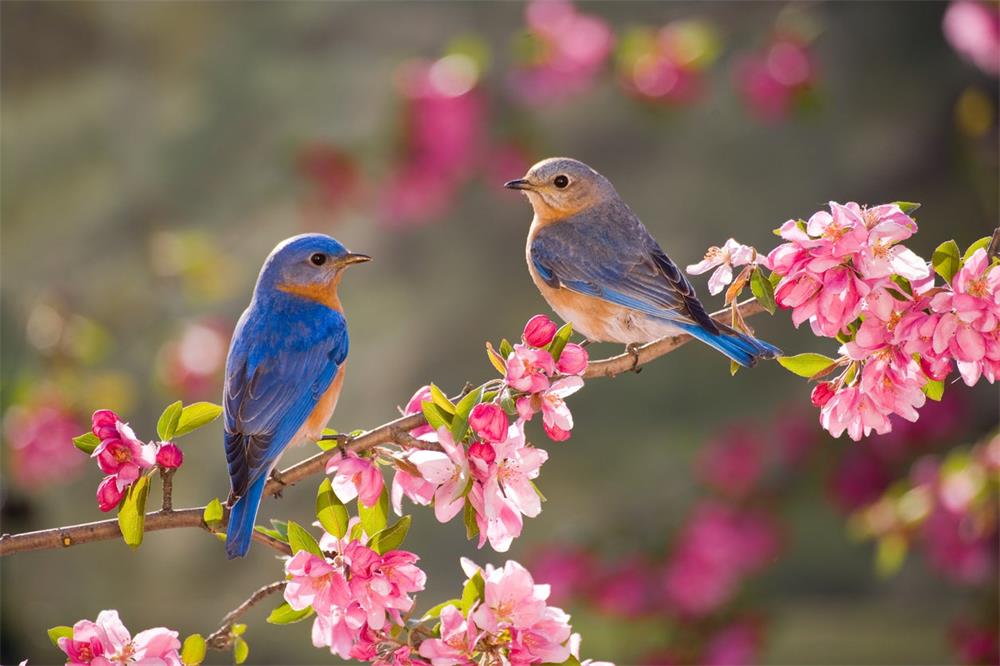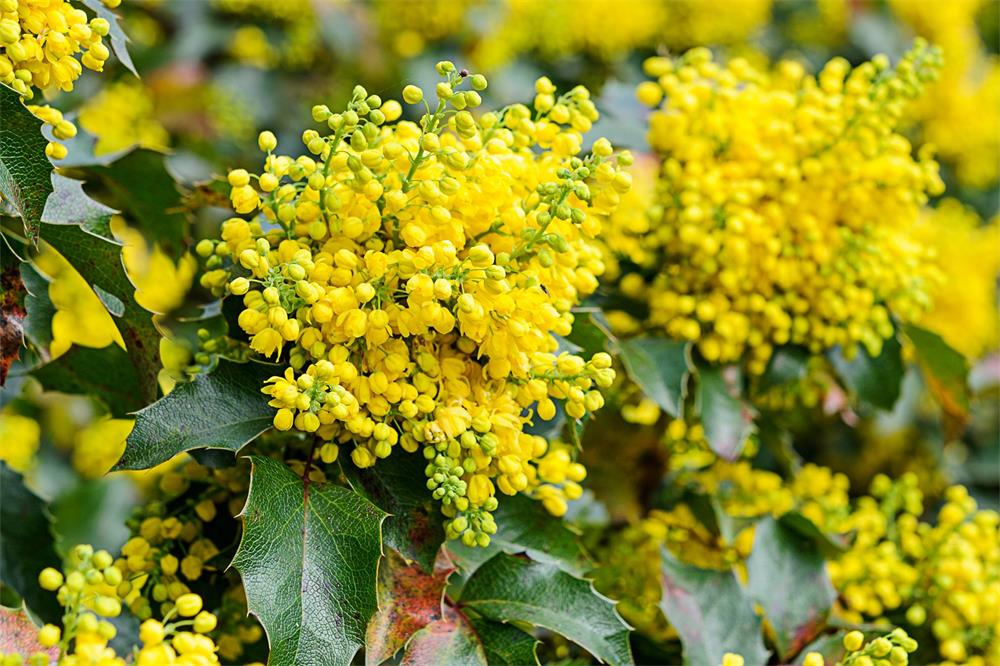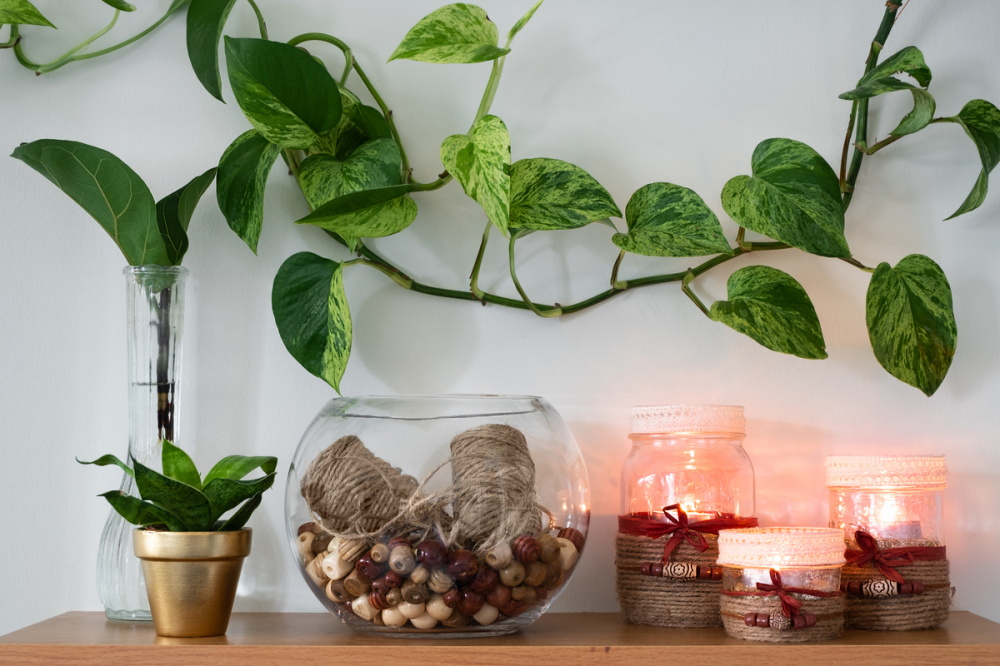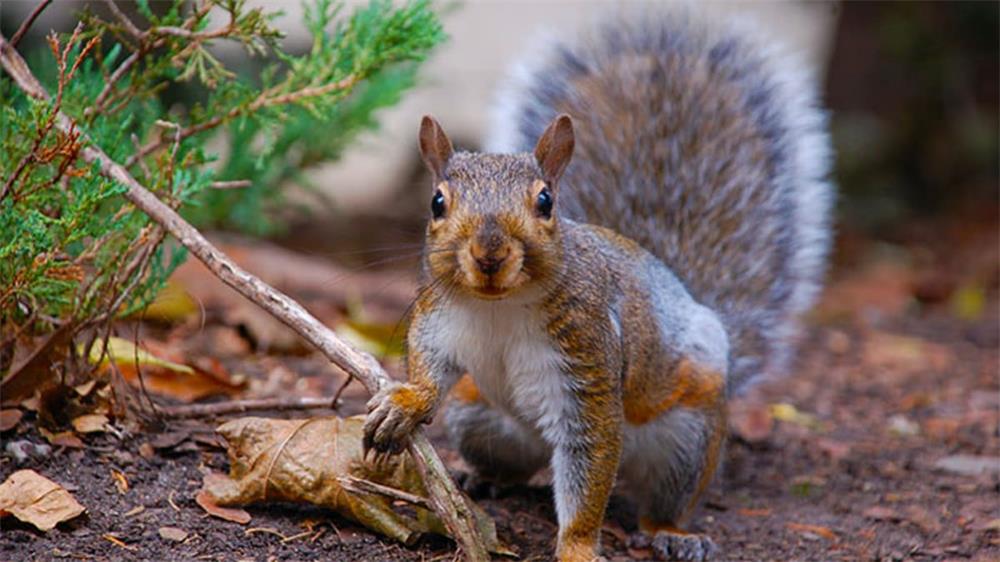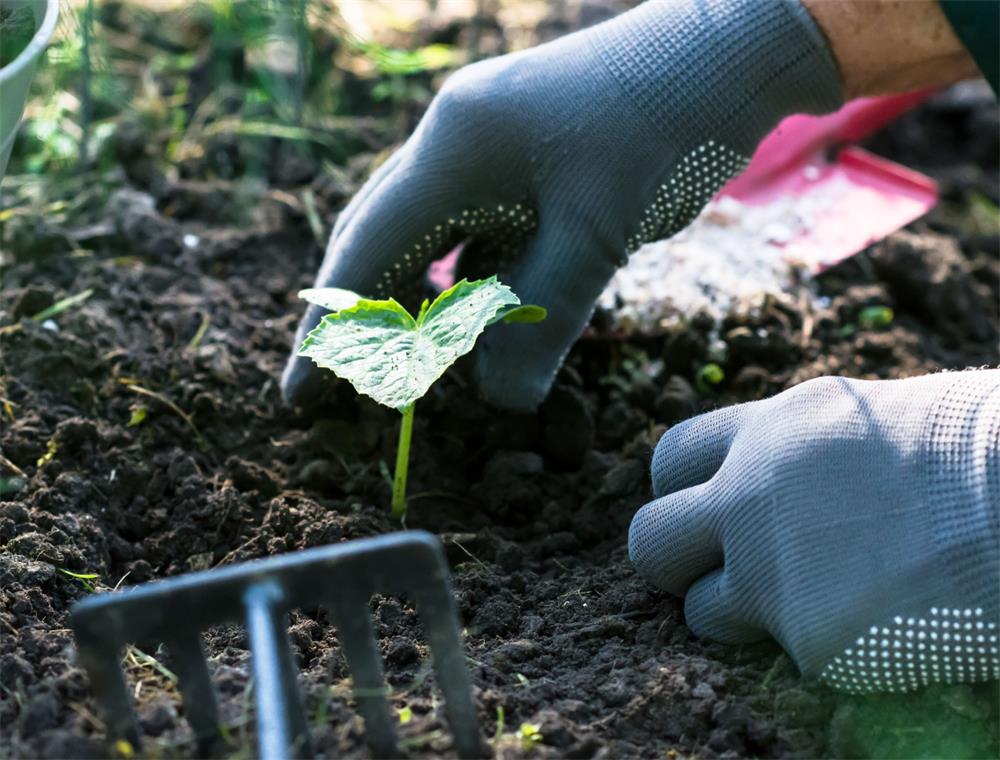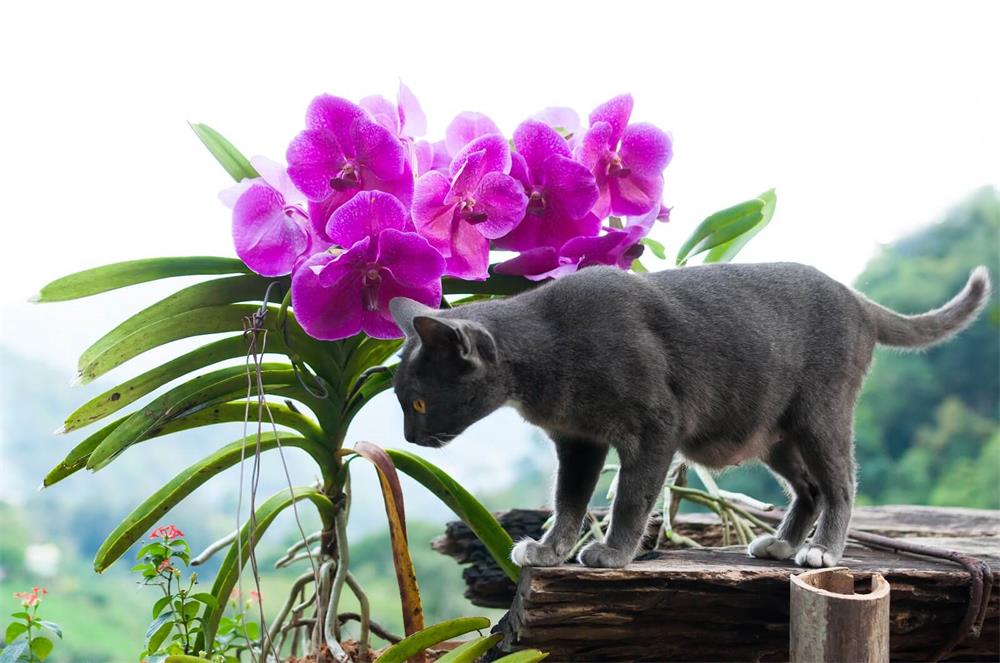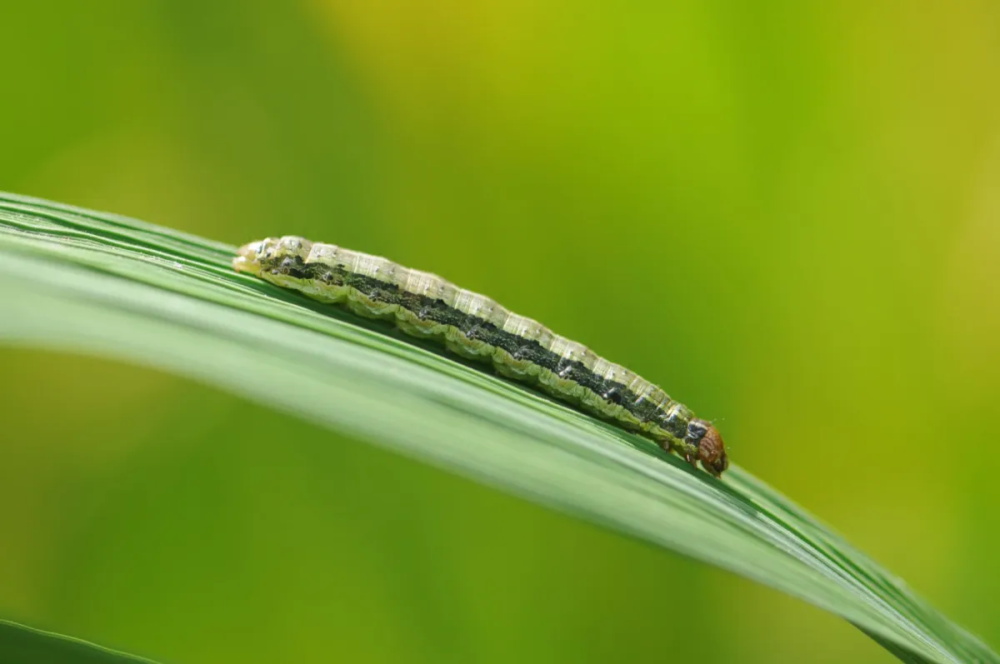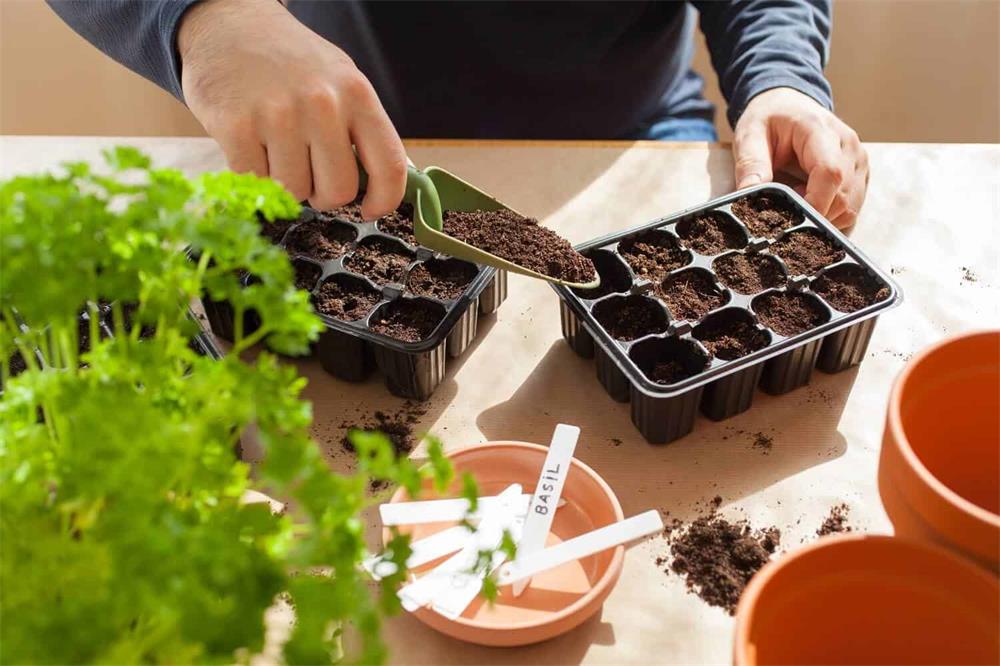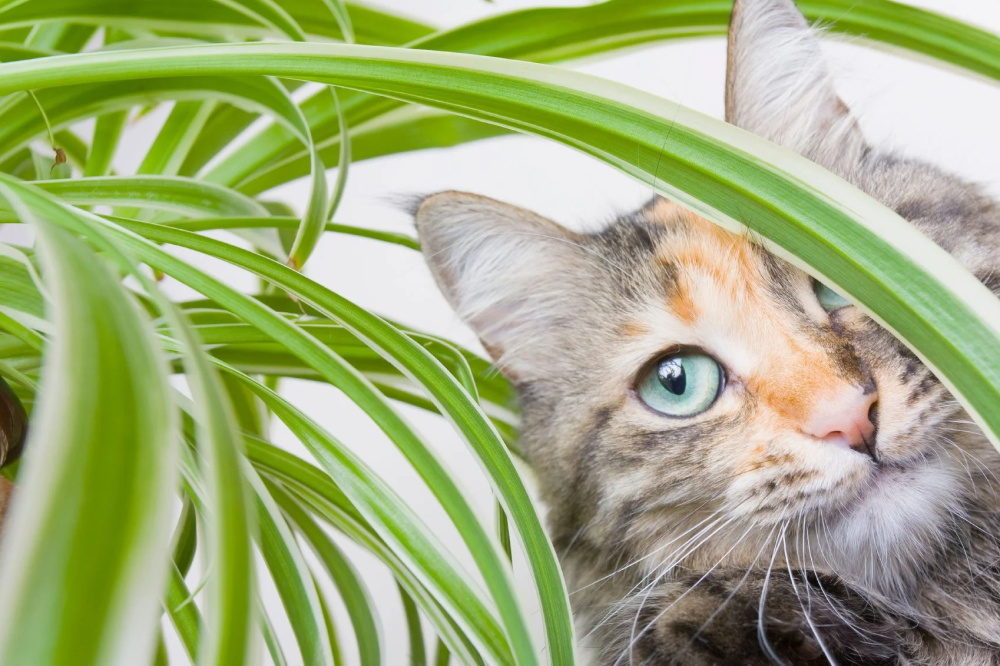
Table of Contents
Spider plants ( Chlorophytum comosum) are one of the most common and easy-to-grow houseplants. They have long, slender leaves that arch gracefully from the center of the plant, and they produce small white flowers that develop into baby plants on long stems. These baby plants, also known as spiderettes, hang from the mother plant like spiders on a web, giving the plant its name.
Spider plants are popular for their air-purifying abilities, low-maintenance care, and attractive appearance. However, if you have a cat at home, you may wonder if spider plants are safe for cats or if they are poisonous plants that can harm your furry friend.
The good news is that spider plants are not toxic to cats, according to the ASPCA 1. This means that your cat can coexist with your spider plants without any serious health risks. However, this does not mean that your cat should eat your spider plants or that you should not take any precautions to protect both your cat and your spider plants.
In this article, we will explain why some cats may be attracted to spider plants, what to do if your cat eats a spider plant, how to prevent your cat from eating your spider plants, and what other factors to consider when keeping spider plants and cats in the same home.
Why Do Cats Eat Spider Plants?
Cats are curious and playful animals that like to explore their environment and try new things. Sometimes, this may include nibbling on your houseplants, including your spider plants. There are several reasons why cats may eat spider plants or other plants, such as:
- Instinct: Cats are natural carnivores, but they may occasionally eat some greens to aid their digestion or supplement their diet with some vitamins or minerals. In the wild, cats may eat the grass-filled intestines of their prey or some fresh grass to help them vomit hairballs or indigestible parts. In the home, cats may look for the closest thing to grass, which could be your spider plants or other plants 2.
- Taste: Some cats may simply enjoy the taste or texture of your spider plants or other plants. They may be attracted by the fragrance, color, or shape of the flowers or leaves. They may also like the crunchy or chewy sensation of biting into them.
- Boredom: Some cats may eat your spider plants or other plants out of boredom or stress. If they do not have enough stimulation, enrichment, or attention from you, they may resort to destructive behaviors such as chewing on your plants. This can also be a way for them to get your attention or express their frustration.
- Curiosity: Some cats may eat your spider plants or other plants out of curiosity or fun. They may be intrigued by the movement of the petals or leaves when there is a breeze or when you water them. They may also enjoy playing with them as toys or hiding behind them as part of their hunting games.
- Hallucination: Some cats may eat your spider plants because they have a mild hallucinogenic effect on them. Spider plants contain chemical compounds that are related to opium and can cause a euphoric sensation in cats 3. This can make them more interested in eating or playing with your spider plants.
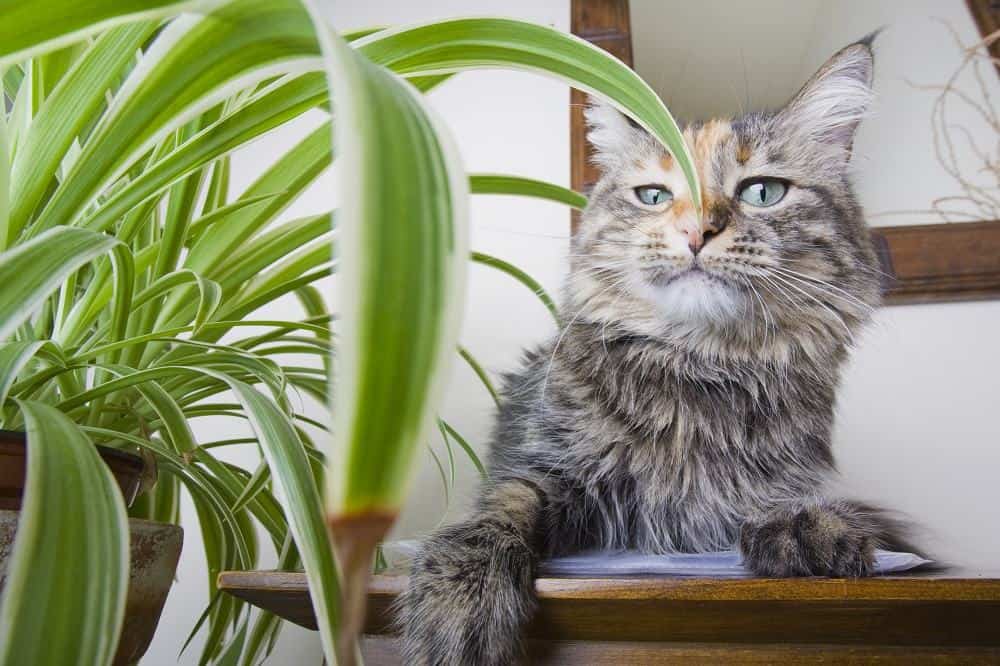
What to Do If Your Cat Eats a Spider Plant?
If you catch your cat eating a spider plant or suspect that it has eaten one, you should not panic. Spider plants are not toxic to cats and will not cause any serious harm if ingested in small amounts. However, you should still monitor your cat for any signs of discomfort or illness, such as:
- Oral irritation: Your cat may experience some irritation or inflammation in its mouth, lips, tongue, or gums after eating a spider plant. This could be due to the physical damage caused by the plant’s fibers or spines, or due to an allergic reaction to the plant’s sap or pollen. You may notice your cat pawing at its mouth, drooling excessively, or having difficulty swallowing.
- Gastrointestinal upset: Your cat may experience some upset in its stomach or intestines after eating a spider plant. This could be due to the indigestibility of the plant material or due to an allergic reaction to the plant’s sap or pollen. You may notice your cat vomiting, having diarrhea, losing appetite, or showing signs of abdominal pain.
- Respiratory distress: Your cat may experience some distress in its respiratory system after eating a spider plant. This could be due to an allergic reaction to the plant’s sap or pollen that causes swelling of the throat or airways. You may notice your cat coughing, wheezing, sneezing, or having difficulty breathing.
If you notice any of these symptoms in your cat, you should contact your veterinarian as soon as possible. They can examine your cat and provide the appropriate treatment, which may include:
- Inducing vomiting: Your veterinarian may induce vomiting in your cat if it has eaten a large amount of spider plant or if it is showing signs of severe distress. This can help expel some of the plant material from your cat’s stomach and prevent further absorption.
- Activated charcoal: Your veterinarian may administer activated charcoal to your cat if it has eaten a large amount of spider plant or if it is showing signs of severe distress. Activated charcoal can bind to some of the toxins in your cat’s system and prevent them from being absorbed into the bloodstream.
- Anti-inflammatory drugs: Your veterinarian may prescribe anti-inflammatory drugs to your cat to reduce the swelling and pain caused by the plant’s fibers, spines, sap, or pollen.
- Antihistamines: Your veterinarian may prescribe antihistamines to your cat to reduce the allergic reaction caused by the plant’s sap or pollen.
- Antibiotics: Your veterinarian may prescribe antibiotics to your cat to prevent or treat any bacterial infections that may result from the damage to the tissues.
- Oxygen therapy: Your veterinarian may provide oxygen therapy to your cat if it has trouble breathing due to swelling of the throat or airways.
The recovery time for spider plant poisoning in cats will depend on the amount of spider plant ingested, the type of spider plant, and the condition of your cat. Some cats may recover within a few hours, while others may need days or weeks of treatment and care. The prognosis for spider plant poisoning in cats is generally good if the diagnosis is made early and the treatment is appropriate.
How to Prevent Your Cat from Eating Spider Plants?
The best way to prevent spider plant poisoning in cats is to keep your cat away from your spider plants. Here are some tips on how to do that:
- Avoid growing spider plants in your home or garden if you have a cat. There are many other cat-friendly plants that you can choose from, such as African violets, bromeliads, or orchids.
- If you do have spider plants in your home or garden, make sure they are out of your cat’s reach. You can hang them from the ceiling, place them on a high shelf, or put them behind a barrier.
- Label your spider plants with a warning sign or sticker that says “toxic to cats” or “keep away from pets”. This can help remind you and others not to let your cat near them.
- Educate yourself and others about the dangers of spider plants for cats. Share this article with your friends and family who have cats or spider plants. If you see someone giving spider plants as a gift to a cat owner, politely inform them that it is not a good idea.
- Provide your cat with alternative plants to chew on, such as cat grass, catnip, or mint. These plants are safe and beneficial for cats and can satisfy their natural urge to eat greens.
- Monitor your cat’s behavior and health regularly. If you notice any signs of spider plant poisoning in your cat, take it to the vet immediately.
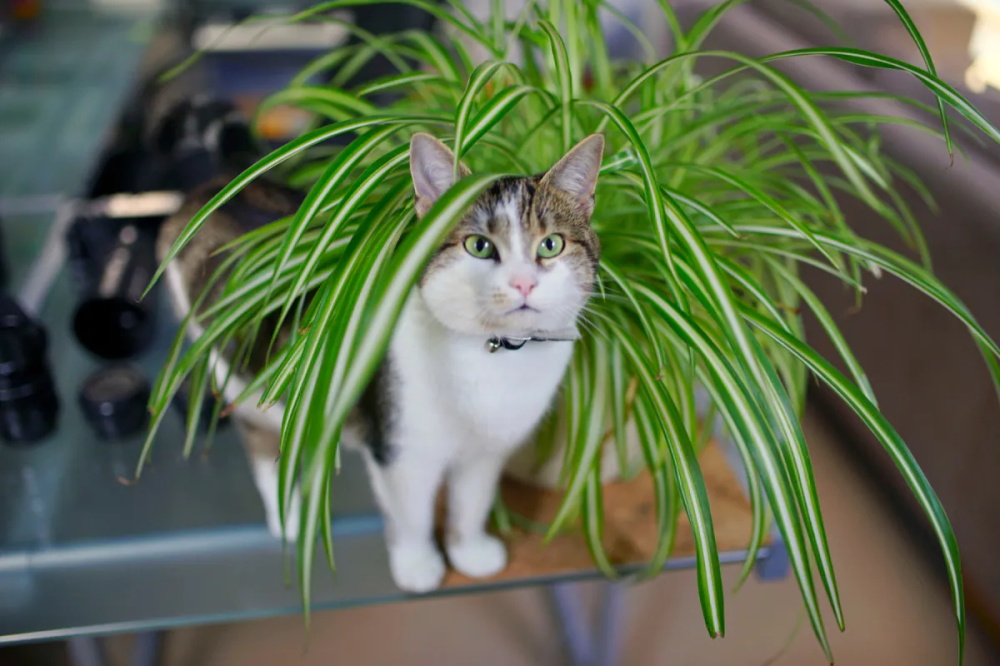
What About Spider Plant Fertilizers and Pesticides?
Another factor to consider when keeping spider plants and cats in the same home is the use of fertilizers and pesticides on your spider plants. These products can be toxic to cats if they come into contact with them or ingest them.
You should always follow the instructions on the label of any fertilizer or pesticide that you use on your spider plants. You should also apply them only to the roots of your spider plants, rather than spraying them over the leaves and flowers. You should also avoid using any fertilizer or pesticide that contains ingredients that are known to be toxic to cats, such as iron, zinc, copper, or pyrethrins.
You should also keep your cat away from your spider plants when you apply any fertilizer or pesticide. You should also wash your hands thoroughly after handling these products and before touching your cat. You should also store these products in a secure place where your cat cannot access them.
If you think that your cat has come into contact with any fertilizer or pesticide that you use on your spider plants, you should seek immediate veterinary help. They can cause symptoms such as drooling, vomiting, diarrhea, tremors, seizures, or coma in cats.
Summary
Spider plants are not toxic to cats, but they can still cause some problems if they are eaten by cats. They can cause oral irritation, gastrointestinal upset, respiratory distress, or allergic reactions in cats. They can also be contaminated with fertilizers or pesticides that are toxic to cats.
If your cat eats a spider plant, you should monitor it for any signs of discomfort or illness and contact your veterinarian if needed. They can provide the appropriate treatment and care for your cat.
The best way to prevent spider plant poisoning in cats is to keep your cat away from your spider plants. You can also provide your cat with alternative plants to chew on, such as cat grass, catnip, or mint. You should also be careful with the use of fertilizers and pesticides on your spider plants and keep them out of your cat’s reach.
Spider plants are common and easy-to-grow houseplants that can purify the air and add a unique flair to any space. However, if you have a cat at home, you should be aware of the potential risks and take some precautions to protect both your cat and your spider plants. With these simple tips, you can enjoy a happy and healthy coexistence between your cat and your spider plants.




